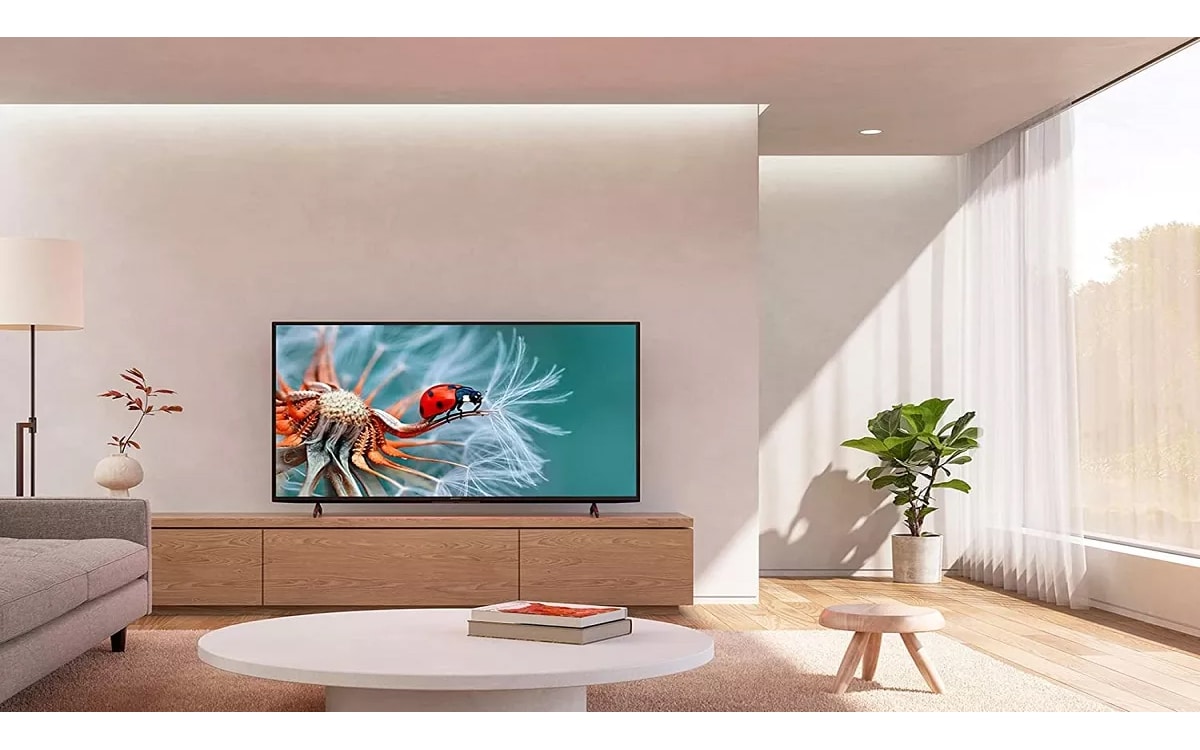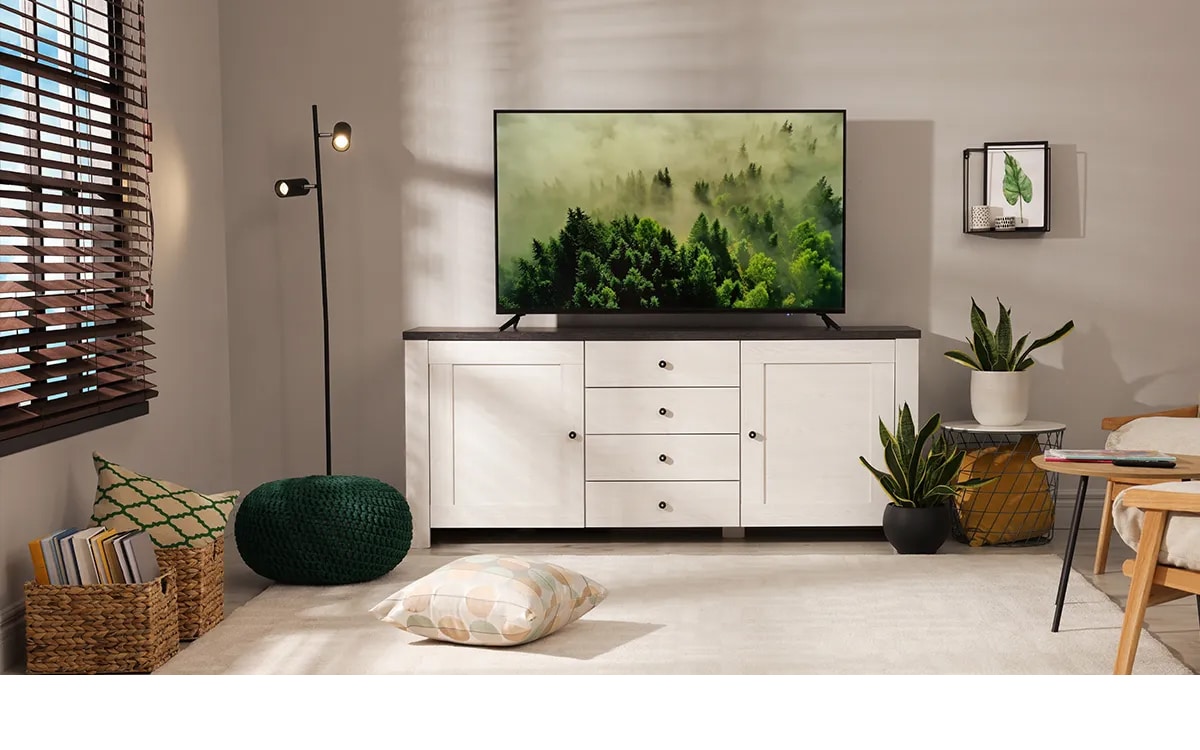But in order to provide us with such easy access to TV content, smart TVs need to do a little more heavy lifting than traditional TVs. This of course leads many people to wonder whether smart TVs might actually use more power than more traditional TVs.
If you’re planning on grabbing your very own smart TV, but you’re worried about your electric bills going up, then allow us to take you through the inner workings of a smart TV, to find out just how much energy one consumes!
Do Smart TVs Consume More Energy?
The answer to this can actually vary, depending on how you tend to use your TV. Because smart TVs have far more functions built into them than standard TVs, this naturally means that they consume slightly more power.
In order for a smart TV to provide all of its extra functions, it makes use of a special computer chip that is able to handle the strain of different web apps and games. Though these chips themselves do not use up much more electricity by themselves, they will naturally use up more energy the more they are used. If you were to have plenty of apps installed on your Smart TV, then it will consume slightly more energy.
However, if you make use of external systems such as game consoles and set-top boxes to access streaming services and games, then you may find that a smart TV actually helps you to consume less electricity! When you have both a TV and an external device operating at the same time, it consumes far more electricity than a smart TV operating independently. As such, you can save a lot of money by opting for a Smart TV!
Smart TVs do not actually use much more energy than traditional TVs, and if you are used to external devices providing you with access to your favourite content, then you may find that a smart TV helps you to save energy that those same devices use!
Does Total Resolution Affect The Efficiency Of A Smart TV?
Unfortunately, resolution can often correlate to energy consumption. Higher-quality TVs will make use of more power than lower-quality TVs. As such, if you are upgrading from a standard 1080p TV to a 4K smart TV, then you may find that it is much more expensive to run.
The reason why 4K TVs tend to consume more energy is down to the extra power required not only to render 4K imagery but also the extra energy required to provide enough light for 4K displays.
Do Larger Smart TVs Use Up More Power?
Not only does resolution affect the total energy consumption of a smart TV, but also the size of the screen. The larger a smart TV is, the more energy it uses in comparison to smaller TVs. The reason for this is simply that there is more for the TV to have to provide power to.
If you’re looking to be more energy-efficient and lower your energy bills, then we would recommend against going for 85 inch TVs or larger, and instead opt for 50 inch TVs or smaller!
Do Smart TVs Cost A Lot To Run? Should You Get One?
Luckily, we can say that, for the most part, Smart TVs do not cost a lot to run. They do not consume much more energy than traditional TVs, and if you were to upgrade to one, you may find yourself saving more money on your energy bills in the long run.
Using a smart TV can help you negate the need for a set-top box or other device just to access streaming services and other content.
Smart TVs are very much worth a purchase. Not only can they help you to access far greater visual fidelity, but they can also act as great all-in-one entertainment centres. You can have all of your favourite streaming services running natively on the TV itself!
Though smart TVs may cost a lot initially, you will very quickly make back your investment on the money that you save from your energy bills!

How To Make Your Smart TV More Energy Efficient
Turn It Off!
It may sound obvious, but turning your smart TV off when it’s not in use really helps the device to use less power, and saves you far more on your bills.
Lower The Brightness
Smart TVs use significant energy when illuminating the image on the screen. To help your TV use less power, it can be useful to lower the brightness even just a little.
Keep Your Smart TV Simple
As we mentioned earlier, smart TVs will need to use significantly more energy in order to keep multiple apps running on the same system. You can help your smart TV run more efficiently by ensuring you do not have too many apps or programs installed!
Frequently Asked Questions
How Can I Save Energy On My Smart TV?
The best way to lower the energy usage of your smart TV is simply to use it less often. The less you use the screen. The less power it uses. When you do use the screen, make sure to lower the brightness, to keep it from using too much energy. And when you are done with the screen, make sure to turn it off!
Does Leaving The TV On All Day Use A Lot Of Electricity?
Naturally, leaving your TV on all day will lead to a lot of electricity being consumed in the long run. We would recommend that you turn your TV off fully whenever it is not in use, as this helps to prevent excessive energy use, and saves you money on your electricity bills every month.
Does Turning TV Off At Plug Save Electricity?
While turning a TV off helps to prevent it from using too much power, it is important to note that the TV will still be consuming power, in order to display things such as the power indicator light. If you want to save a little bit of extra energy, we would recommend also switching your TV off at the wall.
Should You Unplug Everything At Night?
Unplugging your devices when they aren’t in use can help you save a lot on your energy bills. However, it depends on how essential certain devices are to you. For instance, if you need to charge your smartphone for the day ahead, then you will want to keep the charger hooked up.





